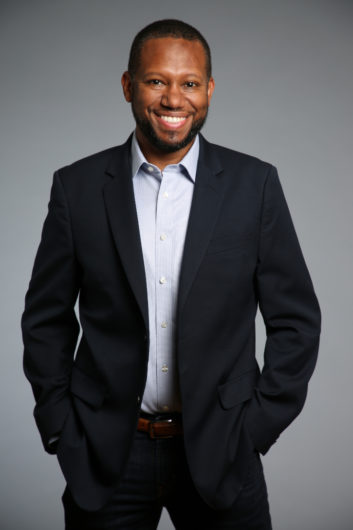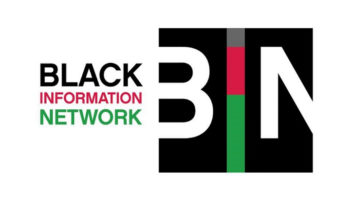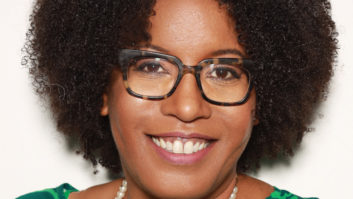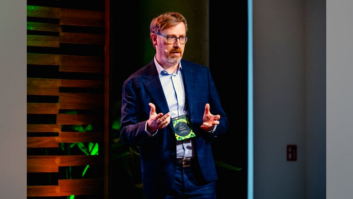 Tony Coles is president of the Black Information Network, a radio news and information service from iHeartMedia. He is also division president for Metro Markets for iHeartMedia. And like so many in radio he’s made many stops on both coasts and both sides of the microphone.
Tony Coles is president of the Black Information Network, a radio news and information service from iHeartMedia. He is also division president for Metro Markets for iHeartMedia. And like so many in radio he’s made many stops on both coasts and both sides of the microphone.
He was interviewed by Suzanne Gougherty, director of MMTC Media and Telecom Brokers at the Multicultural Media, Telecom and Internet Council. MMTC commentaries appear regularly in Radio World, which welcomes other points of view on industry issues.
Suzanne Gougherty: Do you think that BIN is setting a tone on mainstream FM music stations to a targeted audience to deliver access to news and information?
Tony Coles: We are at an interesting moment in time. Audio is hotter than ever, and we are seeing spoken word content being consumed more than ever. In addition to our 24/7 all-news format, the Black Information Network offers a short-form news product that is heard on a number of FM stations. Additionally, BIN supplies news and information over 100 iHeartMedia music stations — the majority on FM. I don’t know if that is setting the tone, but we are excited to fill a void for news and information that people are seeking.
On a broader basis, BIN seeks to address the concern that, especially with the recent and unfortunate narrative around “fake news,” there is a growing lack of trust within the Black population in mainstream news. BIN focuses on issues that are especially important to Black America — Black culture, education (HBCUs), Black wealth, social justice, faith and religion, and especially in the wake of a pandemic that disproportionately impacted communities of color, Black health — and reports on these matters with Black voices, using Black reporters, producers and influencers, to tell the stories — positive and negative — that might otherwise fall outside the traditional news cycle.
[Read: Looking to Radio for a Bounce-Back]
Gougherty: There were so many challenges in 2020—– pandemic which encompassed everything we do—– yet you and your team were able to launch a new product. Tell us how you pulled that off?
Coles: The need for an all-news/information network like BIN to tell the stories and offer the perspectives that are most relevant to Black Americans is not new. This has been a passion of mine for some time, and with the full support of iHeart’s senior leadership we started to build the plan foundation and begin recruitment before the pandemic shut us and everyone else down. When that happened, it impacted our timeline, for sure, but I firmly believe we are better as a result of changing strategy. Working from home caused us to discover not only reporters in places we weren’t looking, but the diversity of a staff in markets of all sizes and time zones makes for more robust reporting. Having the support and full backing of the resources and assets of a company like iHeart, which has been so laser-focused on modernizing and innovating the audio space generally, is also invaluable.
Gougherty: What were some of the behind the scene discussions like to get a full team in place? What kind of broadcast professionals were you seeking to hire? Were some hired from within?
Coles: Hiring an entire staff in a virtual environment has its own set of unique challenges, but we have been fortunate to find an incredible team. Because of our national platform, it was important for us to have a staff that reflects the complexity and diversity of Black America. Our team ranges from former New York TV reporters to anchors in rural Alabama. It was incredibly gratifying — and exciting — as some of the most well-respected Black voices out there — Tanita Myers, Ed Gordon, Roland Martin, and so many others — agreed to join us as we built this team. But we not only have seasoned veterans we are very intentionally creating opportunities for the next generation of Black media, including some who are just starting their careers. And while we were able to tap into the strong resources of our parent company, we have put a lot of effort into hiring a significant number of new reporters and anchors. In fact, the vast majority of the Black Information Network team members are Black. Top to bottom; young and old. This is hugely important to what makes the Black Information Network so special, and hopefully, so impactful to our listeners and communities.

Gougherty: Have you ever worked in a broadcast newsroom?
Coles: I was fortunate enough to start my career working at a full-service AM station and helping to produce the late news for the local NBC affiliate. Over the years, I was a news anchor at a number of stations. Thankfully, our newsroom is much more sophisticated, and our anchors are much better than I was. Still, having that background has given me a deeper respect and appreciation for the work our team is doing, and a particular passion for the role of Black journalism in reporting the news and telling the stories that need to be told at the local, national and international levels. BIN’s unique business model is actually quite relevant here, as well. Unlike traditional radio stations and audio networks, BIN is not chasing advertisers to fill inventory spot ads. Instead, we several Founding Partners have invested upfront to support BIN’s mission. This allows us to be laser-focused on the stories, the news, and the information we are committed to covering from a Black perspective.
Gougherty: Coming up soon is the first anniversary of BIN, what was the biggest challenge that you faced in year one and how did you overcome it?
Coles: Launching a network like BIN during a pandemic that disproportionally impacted the Black community and in the middle one of the most pivotal times in the social justice movement was even harder than it sounds. Not being able to physically be in the same room with the team — ever — was personally and professionally challenging.
Thankfully, we have an amazing team of engineers, incredible technology, and lots of coffee. Lots of coffee. Additionally, while BIN is the first of its kind 24/7 news and information network, true to our local broadcasting heart, we are committed to serving local communities, especially where there is a large Black population either in total numbers or just as a percentage of that community. That means that while we are in major urban centers such as New York, Atlanta and Washington, we are also in smaller, more rural communities such as Jackson, Miss., Macon, Ga. and Greenville, S.C. And a lot of places in between.
So yes, one of the big challenges, during a pandemic or otherwise, was identifying, and if necessary, acquiring, and then standing up, radio stations to build out our local footprint. I’m very proud to say that since our launch in June 2020, we’ve more than doubled the number of local BIN stations delivering our content 24/7. These stations carry not only the network programming, but also local stories, including from on-the-ground BIN reporters.
Gougherty: There are many issues that impact the Black communities, tell us some of the leading stories your team has covered in year one? What do they feel is their biggest accomplishment?
Coles: Our first year was filled with so many big stories that it is hard to even begin to list them. Obviously, the Black Lives Matter protests from last summer and our ongoing coverage of the impact of COVID-19 on the Black community top the list. Beyond that, I think our team would say so many of the stories that we brought to light when other news outlets either didn’t tell them, wouldn’t tell them, or told them from a biased perspective. From terribly disturbing stories such as the ongoing water crisis in Flint, Mich., to uplifting stories such as the election of the first Black woman Vice President, to highlighting the work Black leaders in business are doing to create generational wealth in the community — we have been and continue to be a part of it all. This is the stuff I tell my kids about.
Gougherty: How did your BIN team cover the Chauvin trial and verdict?
Coles: One of our first network affiliates was KQQL(HD2) BIN 93.3 in Minneapolis. They carried live coverage of the trial from gavel to gavel. As a result, they were able to supply the network with great content and perspective, which was the engine for both our network reporting and a nightly trial recap that aired across the network. When the verdict came in, we aired it live across the network and within minutes we offered special reports to over 150 radio stations across the country.
[Read: Keeping Sports Hot in the Age of Coronavirus]
Gougherty: What is your day-to-day workload entail?
Coles: In addition to running the network, I am also a division president for 21 iHeartMedia markets. Fortunately, I am blessed to have great leaders in the markets, and an incredible leadership team at BIN. Most days are spent working to grow the network, interacting with our clients, and working with the local market leadership teams in my division to help them get results for our clients, improve the listening experience for our audiences, and grow and develop our teams.
Gougherty: When you envisioned BIN, were you thinking deeply about social responsibility, diversity and inclusion as a delivery vehicle to diverse audience?
Coles: BIN was conceived long before the events of last summer, so our perspective on social responsibility had a different context. That said, we always wanted the network to be the voice of the unheard. We wanted our actions to lift up Black voices and create jobs and opportunities in the Black community, and for our reporting to create and amplify change.
Gougherty: What do you feel are the misconceptions about radio versus the big streaming companies?
Coles: We have said it for years and will continue to say it: Radio is about companionship. Listeners turn to radio to be their friend and companion. Streaming services are wonderful places for your music collection, but when you want to be entertained, informed, and engaged, only radio can offer that deep and lasting connection.
Gougherty: As a black radio executive please share your thoughts about the cultural divide in the country and how that’s expressed itself in radio?
Coles: My great grandfather was a slave. My grandfather witnessed his murder at the hands of someone who felt slavery shouldn’t have ended. The KKK burned the first home my parents ever owned. My story isn’t unique, but it is a reminder of just how much darkness and division is rooted in our not so distant history. The cultural divide in our country runs deep and it won’t be resolved soon, but I am encouraged by so many of the things we have seen and heard over the past 12 months. While I am incredibly proud of the work the Black Information Network has done, I am equally proud of the conversations talent across the industry have sparked. We cannot resolve anything that we are not willing to discuss. Radio has always been at the center of conversations, and I am so proud that in this moment, we are once again the voice of change.







